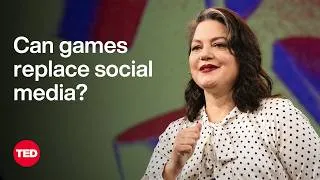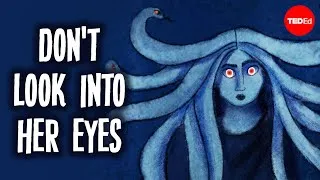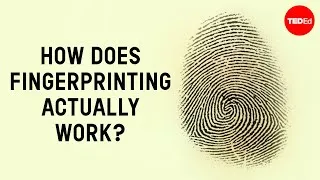The difference between classical and operant conditioning - Peggy Andover
经典条件反射和操作性条件反射的区别 - 佩吉·安多弗
3,422,642 views ・ 2013-03-07
请双击下面的英文字幕来播放视频。
00:00
Translator: Andrea McDonough
Reviewer: Bedirhan Cinar
0
0
7000
翻译人员: Peipei Xiang
校对人员: Jenny Yang
00:14
When we think about learning,
1
14216
1488
当我们想到学习,
00:15
we often picture students in a classroom or lecture hall,
2
15704
2661
我们通常想到学生在教室或报告厅的画面,
00:18
books open on their desks,
3
18365
1308
摊开在桌子上的课本,
00:19
listening intently to a teacher or professor
4
19673
2268
认真地听着前面的老师或教授授课。
00:21
in the front of the room.
5
21941
1658
00:23
But in psychology, learning means something else.
6
23599
2912
但是在心理学里面,学习则是另一回事。
00:26
To psychologists, learning is a long-term change in behavior
7
26511
3641
对心理学家而言,
学习是基于体验的长期的行为改变。
00:30
that's based on experience.
8
30152
2131
00:32
Two of the main types of learning are called
9
32283
2096
学习的两大主要类型为
00:34
classical conditioning
10
34379
1642
经典条件性反射
00:36
and operant, or instrumental, conditioning.
11
36021
3045
和操作性条件反射。
00:39
Let's talk about classical conditioning first.
12
39066
2903
我们先来说说经典条件反射。
00:41
In the 1890's, a Russian physiologist named Ivan Pavlov
13
41969
3536
在1890年代,一个名为伊万·巴甫洛夫的
俄罗斯生理学家
00:45
did some really famous experiments on dogs.
14
45505
2899
在狗身上做了非常著名的实验。
00:48
He showed dogs some food
15
48404
1332
他在给狗食物的同时
00:49
and rang a bell at the same time.
16
49736
2044
也响了响铃当。
00:51
After a while, the dogs would associate the bell with the food.
17
51780
3510
不久以后,这些狗就将食物和铃当联系起来。
00:55
They would learn that when they heard the bell,
18
55290
1652
它们明白了当有铃声响起的时候,
00:56
they would get fed.
19
56942
1478
它们就会有吃的。
00:58
Eventually, just ringing the bell
20
58420
2034
最后,只要铃声一响,
01:00
made the dogs salivate.
21
60454
1461
这些狗就开始分泌唾液。
01:01
They learned to expect food at the sound of a bell.
22
61915
3546
它们觉得有铃声就应该有食物。
01:05
You see, under normal conditions,
23
65461
2103
我们知道,在通常情况下,
01:07
the sight and smell of food causes a dog to salivate.
24
67564
3451
只有看到闻到食物,狗才会分泌唾液,
01:11
We call the food an unconditioned stimulus,
25
71015
2550
我们称食物为无条件刺激,
01:13
and we call salivation the unconditioned response.
26
73565
3999
我们称分泌唾液为无条件反射。
01:17
Nobody trains a dog to salivate over some steak.
27
77564
3468
没有人需要教一只狗如何在看到牛排时分泌唾液。
01:21
However, when we pair an unconditioned stimulus like food
28
81032
3281
然而,当我们将一个无条件刺激,比如食物,
01:24
with something that was previously neutral,
29
84313
2321
和一个原来是中性的东西,比如铃声,
联结起来的时候,
01:26
like the sound of a bell,
30
86634
1568
01:28
that neutral stimulus becomes a conditioned stimulus.
31
88202
3256
那个中性的刺激物变成了条件刺激。
01:31
And so classical conditioning was discovered.
32
91458
3628
于是经典条件反射理论诞生了。
01:35
We see how this works with animals,
33
95086
2377
我们可以看到它在动物身上的应用,
01:37
but how does it work with humans?
34
97463
2125
应用到人身上是怎样的?
01:39
In exactly the same way.
35
99588
1817
也是完全一样的。
01:41
Let's say that one day you go to the doctor to get a shot.
36
101405
3406
比如某一天你去医生那里打针,
01:44
She says, "Don't worry, this won't hurt a bit,"
37
104811
2955
她说:“不要怕,这一点都不会疼”,
01:47
and then gives you the most painful shot you've ever had.
38
107766
4169
然后她给你打了你这辈子打过的最疼的一针。
01:51
A few weeks later you go to the dentist for a check-up.
39
111935
2921
几个星期以后,你去一个牙医那里检查,
01:54
He starts to put a mirror in your mouth
40
114856
1552
他开始把一个镜子放在你的嘴巴里
01:56
to examine your teeth,
41
116408
1451
来检查你的牙齿,
01:57
and he says, "Don't worry, this won't hurt a bit."
42
117859
3465
他说:“不要怕,这一点都不会疼”。
02:01
Even though you know the mirror won't hurt,
43
121324
2423
虽然你知道这个镜子不会让你疼,
02:03
you jump out of the chair and run,
44
123747
1448
你却立马从椅子上跳起来撒腿就跑,
02:05
screaming from the room.
45
125195
1729
边跑边叫。
02:06
When you went to get a shot,
46
126924
1680
当你去打针的时候,
02:08
the words, "This won't hurt a bit,"
47
128604
2248
“这一点都不会疼”的字眼
02:10
became a conditioned stimulus
48
130852
1615
成为了一个条件刺激,
02:12
when they were paired with pain of the shot,
49
132467
2161
跟打针的疼痛联结在一起,
02:14
the unconditioned stimulus,
50
134628
2009
打针的疼痛则是无条件刺激,
02:16
which was followed by your conditioned response
51
136637
2161
于是就有了你的条件反射,
02:18
of getting the heck out of there.
52
138798
2472
也就是跑得远远的。
02:21
Classical conditioning in action.
53
141270
2738
经典条件反射进行时。
02:24
Operant conditioning explains how consequences
54
144008
2259
操作性条件反射解释的是
结果如何导致自愿的行为改变。
02:26
lead to changes in voluntary behavior.
55
146267
2875
02:29
So how does operant conditioning work?
56
149142
2336
那操作性条件反射是怎么一回事呢?
02:31
There are two main components in operant conditioning:
57
151478
3252
操作性条件反射主要有两个组成部分:
02:34
reinforcement and punishment.
58
154730
2259
强化和惩罚。
02:36
Reinforcers make it more likely
59
156989
1788
强化让你更可能
02:38
that you'll do something again,
60
158777
1748
重复某一行为,
02:40
while punishers make it less likely.
61
160525
2183
而惩罚则相反。
02:42
Reinforcement and punishment can be positive or negative,
62
162708
3161
强化和惩罚可以是积极的也可以是消极的,
02:45
but this doesn't mean good and bad.
63
165869
2265
但这不是指好和坏。
02:48
Positive means the addition of a stimulus,
64
168134
2356
积极指的是增加某一刺激,
02:50
like getting dessert after you finish your veggies,
65
170490
2461
比如在你吃完蔬菜后给你甜品,
02:52
and negative means the removal of a stimulus,
66
172951
2313
消极指的是去除某一刺激,
02:55
like getting a night of no homework
67
175264
1701
比如因为你考试成绩好而给你取消作业。
02:56
because you did well on an exam.
68
176965
2504
02:59
Let's look at an example of operant conditioning.
69
179469
2707
让我们来看一个操作性条件反射的例子。
03:02
After eating dinner with your family,
70
182176
1819
你跟你的家人用完晚餐后,
03:03
you clear the table and wash the dishes.
71
183995
2527
你收拾了桌子,洗了碗筷。
03:06
When you're done, your mom gives you a big hug
72
186522
2202
你做好这些以后,你的妈妈给了你一个大大的拥抱,
03:08
and says, "Thank you for helping me."
73
188724
2384
说:”谢谢你帮我。“
03:11
In this situation, your mom's response
74
191108
2159
在这个情景里面,你妈妈的回应
03:13
is positive reinforcement if it makes you more likely
75
193267
2629
是积极的强化——
如果你以后更可能重复那个操作性反应,
03:15
to repeat the operant response,
76
195896
1793
03:17
which is to clear the table and wash the dishes.
77
197689
2922
也就是收拾桌子和洗碗筷。
03:20
Operant conditioning is everywhere in our daily lives.
78
200611
3427
操作性条件反射在我们的日常生活中随处可见。
03:24
There aren't many things we do
79
204038
1495
我们做的事情里面很少
03:25
that haven't been influenced at some point
80
205533
1940
有不被操作性条件反射影响过的。
03:27
by operant conditioning.
81
207473
1835
03:29
We even see operant conditioning
82
209308
1772
我们甚至见过一些不寻常的
操作性条件反射的例子。
03:31
in some extraordinary situations.
83
211080
3041
03:34
One group of scientists showed the power
84
214121
2340
一群科学家们向我们展示了
操作性条件反射的力量——
03:36
of operant conditioning
85
216461
1040
03:37
by teaching pigeons to be art connoisseurs.
86
217501
2889
他们训练鸽子为艺术鉴赏家。
03:40
Using food as a positive reinforcer,
87
220390
2335
通过把食物作为积极强化物,
03:42
scientists have taught pigeons
88
222725
1417
科学家们教会了鸽子
03:44
to select paintings by Monet
89
224142
2250
选择莫奈的画
03:46
over those by Picasso.
90
226392
1996
而非毕加索的画。
03:48
When showed works of other artists,
91
228388
2256
当这些鸽子看到其他艺术家的画时,
03:50
scientists observed stimulus generalization
92
230644
2792
科学家们观察到刺激泛化,
03:53
as the pigeons chose the Impressionists
93
233436
1793
这些鸽子选择了印象派的画,
03:55
over the Cubists.
94
235229
1525
而非立体派的画。
03:56
Maybe next they'll condition the pigeons
95
236754
1855
也许接下来他们可以训练鸽子
03:58
to paint their own masterpieces.
96
238609
1926
画出它们自己的杰作。
New videos
关于本网站
这个网站将向你介绍对学习英语有用的YouTube视频。你将看到来自世界各地的一流教师教授的英语课程。双击每个视频页面上显示的英文字幕,即可从那里播放视频。字幕会随着视频的播放而同步滚动。如果你有任何意见或要求,请使用此联系表与我们联系。







